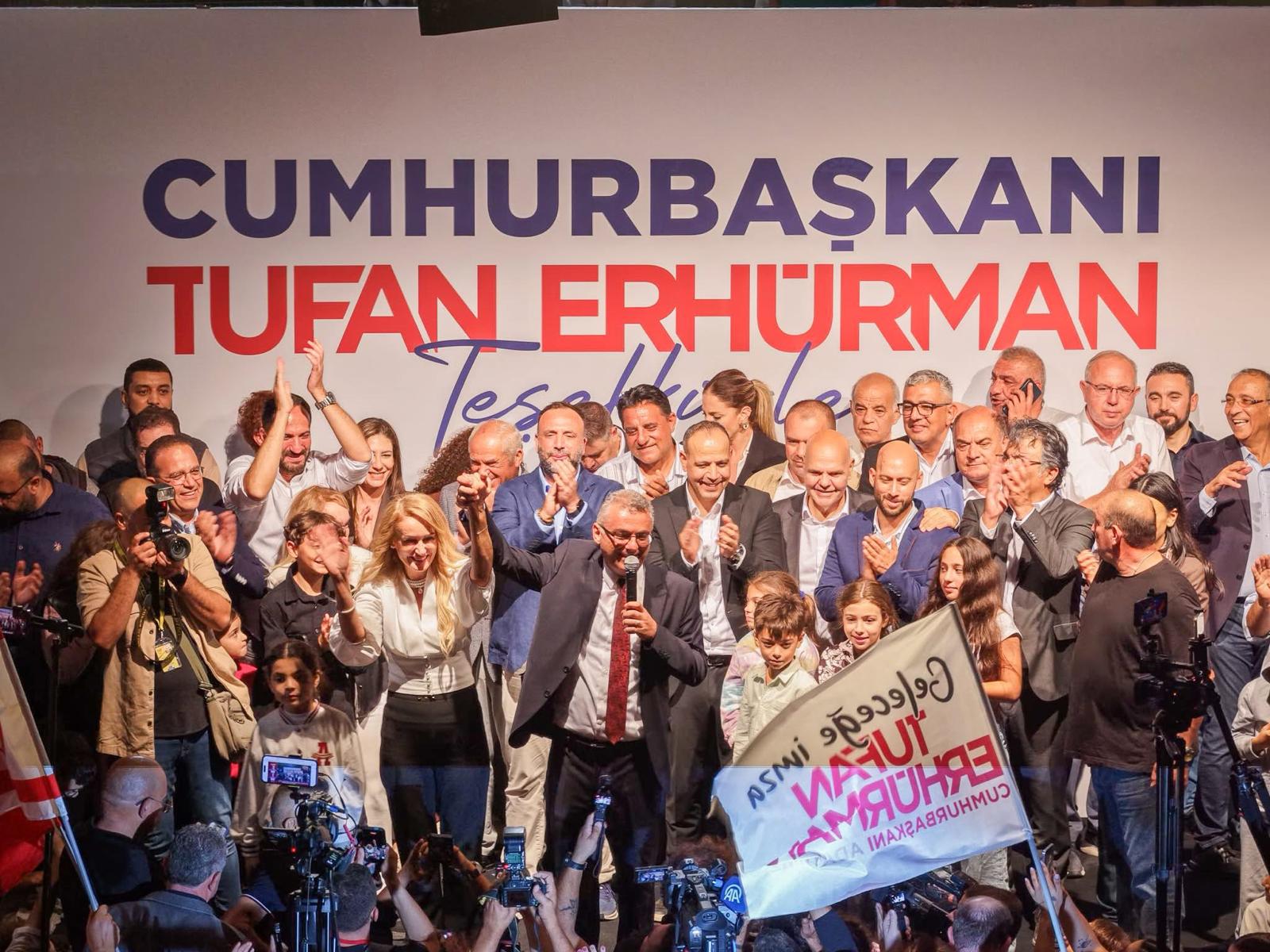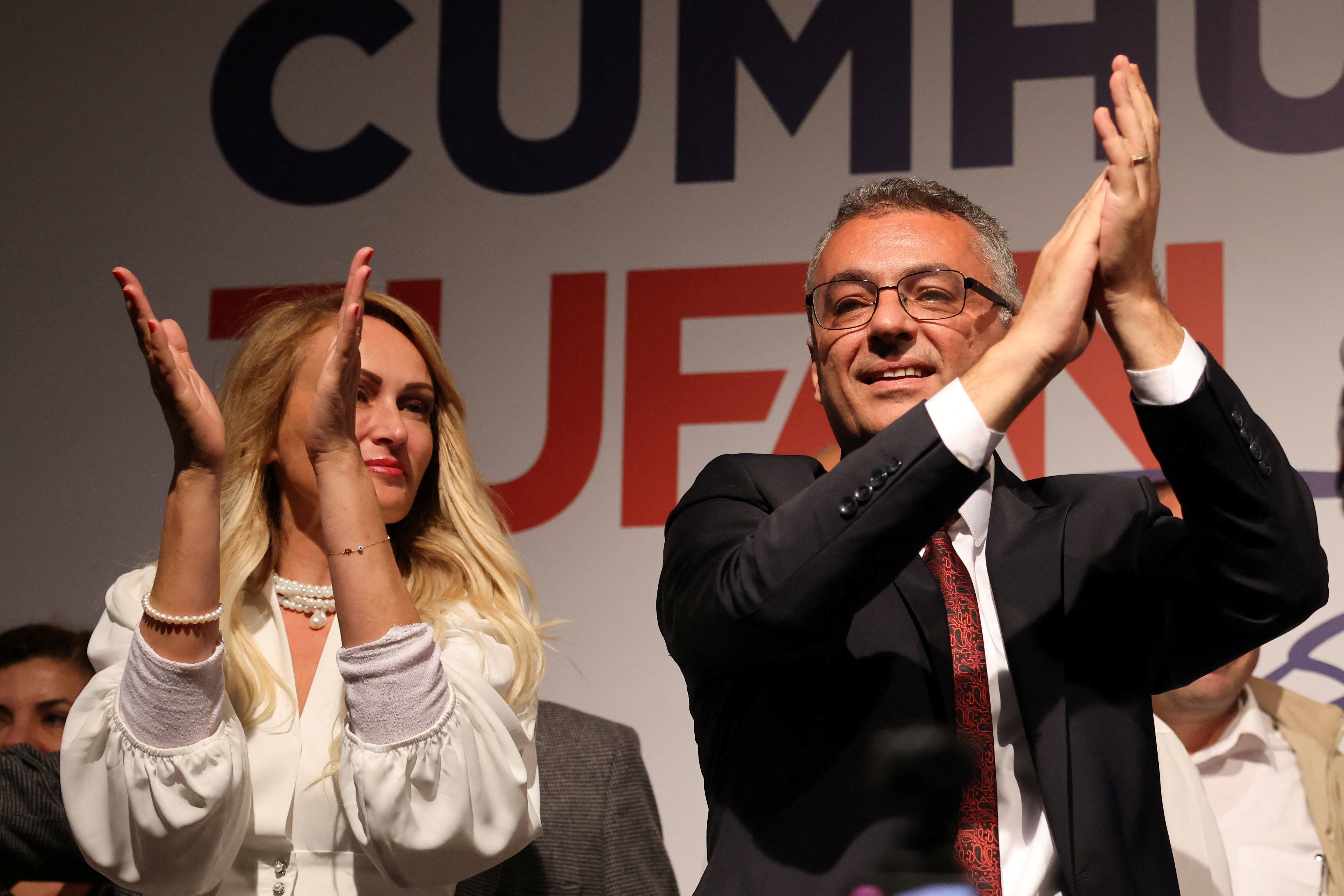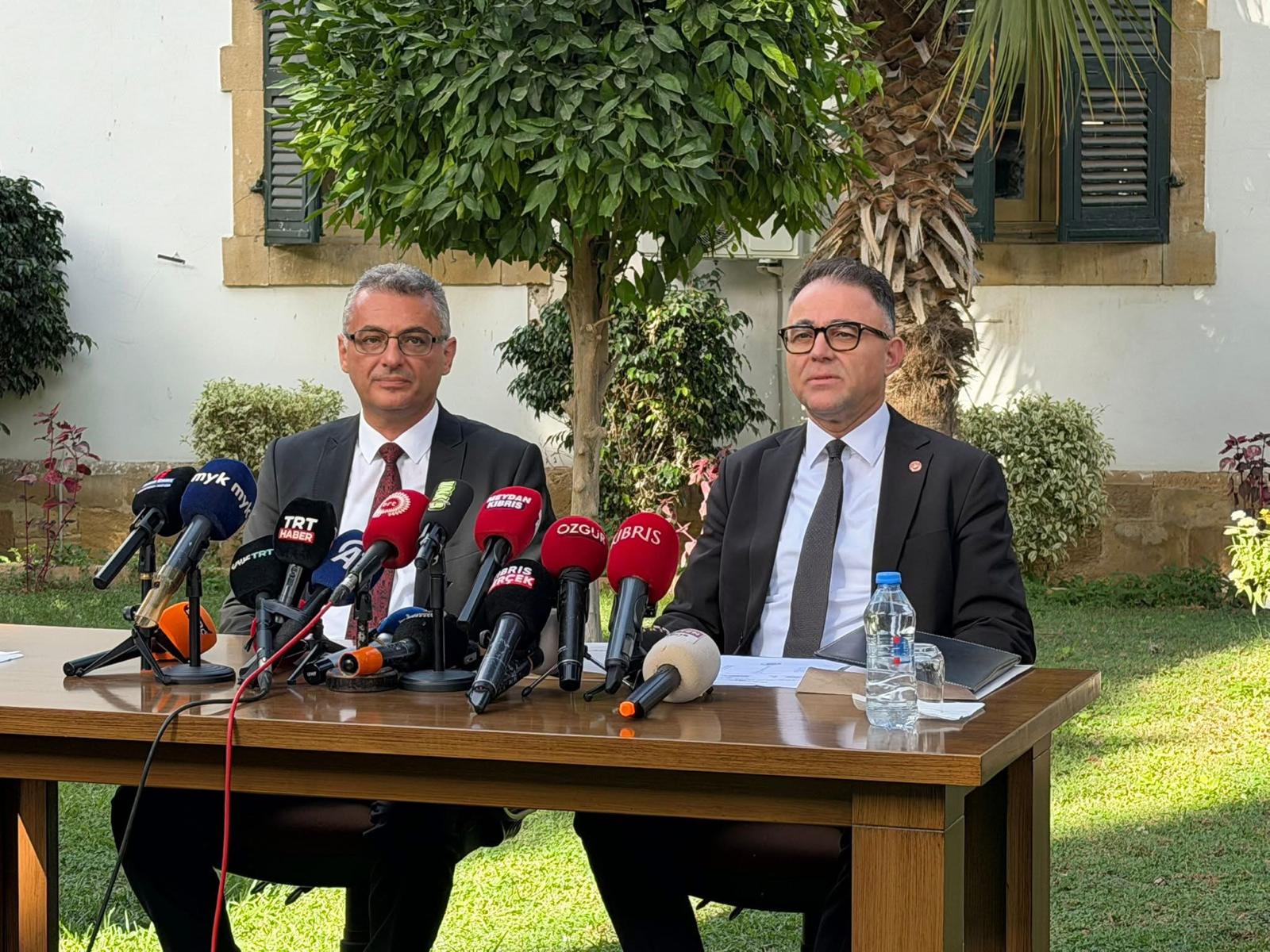Turkish Cypriot leader-elect Tufan Erhurman received his official mandate certificate on Monday after pulling off a landslide victory over his soon-to-be predecessor Ersin Tatar at Sunday’s election.
The certificate was handed to him by Turkish Cypriot supreme election council chairman Bertan Ozerdag at the courthouse in Nicosia’s old town.
“No one had the slightest doubt. This is a testament to how deeply entrenched democracy, with all its institutions, is in our country … I received my mandate today. As president, I will not give up for even a minute on protecting the rule of the constitution and the rule of law,” Erhurman said.
He will be officially sworn in as Turkish Cypriot leader on Friday morning.
Earlier on Monday, the election’s official results had been announced, spelling out in fine detail the immense margin of Erhurman’s victory the previous day.

He won 87,137 votes – almost 20,000 more than the previous record number of votes amassed by a Turkish Cypriot leadership candidate – and took 62.8 per cent of the vote, a proportion not matched since Rauf Denktash’s victory in 1990.
For Ersin Tatar, meanwhile, it was a chastening night, winning just 35.8 per cent of the vote and being beaten in each of the north’s six electoral districts, including Trikomo, typically a stronghold for nationalist candidates.
In northern Nicosia, meanwhile, he managed to win just 29.4 per cent of the vote.
Erhurman made his victory speech to a crowd of thousands at northern Nicosia’s Kizilbas Park on Sunday night, telling them that the day’s election was “not an election where some people win and others lose”, but that instead, “the Turkish Cypriot people won tonight”.
“There are many wonderful things we can do together. When we are together, there is nothing we cannot do,” he said.
Later in his speech, he promised that he will “never give up on this land” and “never give up on the children of this country”.

“I am proud to be the president of and one of the Turkish Cypriot people. I thank you for walking with me and for granting me this honour,” he said.
Erhurman’s election comes at a time of heightened activity on the Cyprus problem, and as such, a busy few weeks await him.
He promised during the campaign that his first visit on taking office would be to Ankara to meet Turkish President Recep Tayyip Erdogan and other high-level Turkish officials – an important move on light of the fact that many in the highest echelons of Turkish politics have spent the last few weeks actively campaigning against him.
On the island, he is expected to meet new United Nations high representative Khassim Diagne, and later envoy Maria Angela Holguin, ahead of a third enlarged meeting on the Cyprus problem of the year, which is expected to take place in New York towards the end of the month.
That meeting, just as the previous two meetings attended by Tatar, will be attended by representatives of Cyprus’ two sides, its three guarantor powers, Greece, Turkey and the United Kingdom, and the UN.
Born on September 11, 1970 in Nicosia, Erhurman attended the Turk Maarif Koleji, the most prestigious school in the north which does not charge tuition fees, before going on to study law at Ankara University.

Back on the island, he began working as a faculty member at Famagusta’s Eastern Mediterranean University and later at northern Nicosia’s Near East University, before being named on former Turkish Cypriot leader Mehmet Ali Talat’s negotiating team in 2008.
He remained on the negotiating team until 2010, when Talat was beaten in that year’s leadership election by Dervish Eroglu, before entering frontline politics three years later as an ‘MP’.
He became the CTP’s leader in 2016, and became ‘prime minister’ after the 2018 legislative elections, despite a poor electoral performance, putting together an unlikely four-party ruling coalition.
When that coalition fell apart in 2019, he returned to opposition, before running for election as Turkish Cypriot leader in 2020, and finishing in third place behind Tatar and Mustafa Akinci. Five years on, he has pulled off a historic victory, and will now serve a five-year term until October 2030.
He has long been an advocate for a federal solution to the Cyprus problem and for strengthened relations between the Turkish Cypriots and the European Union, telling a rally of around a thousand people in Kyrenia in August that “every corner of this island will be Europe”.






Click here to change your cookie preferences